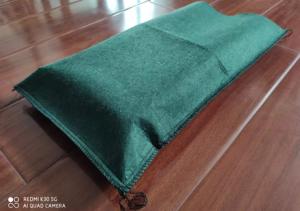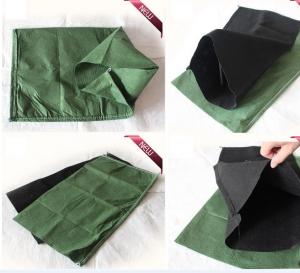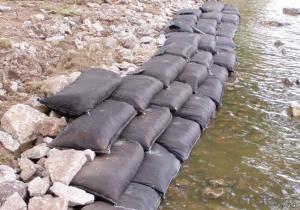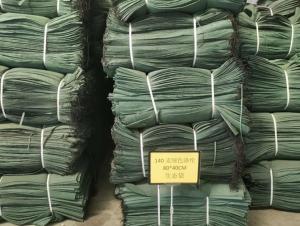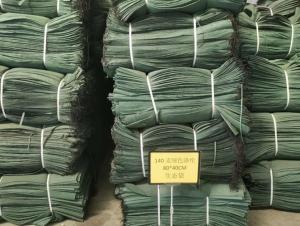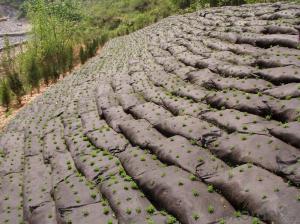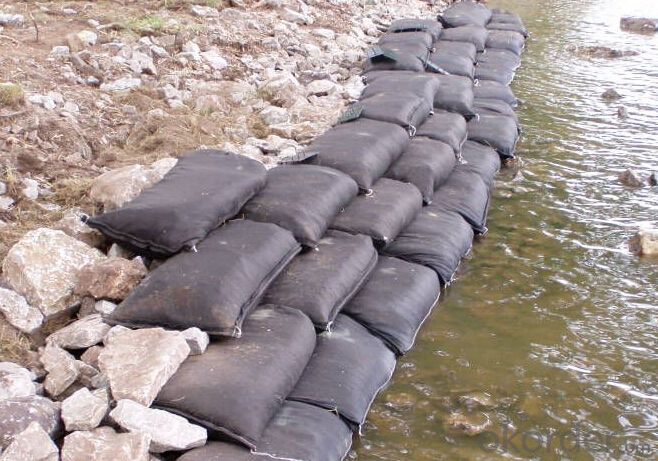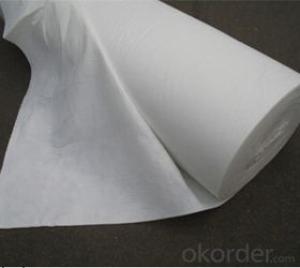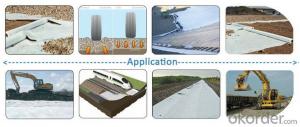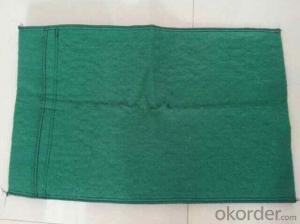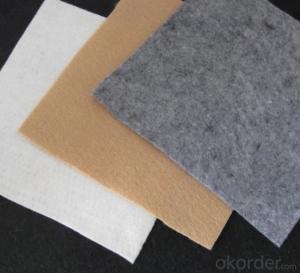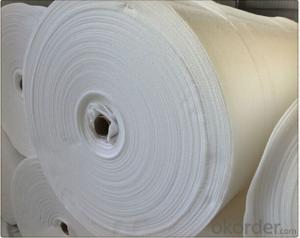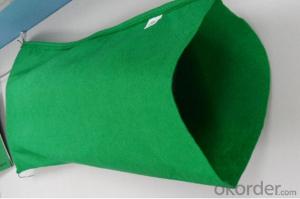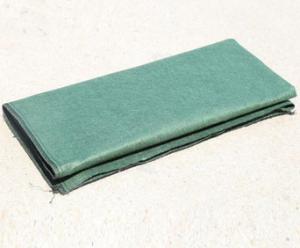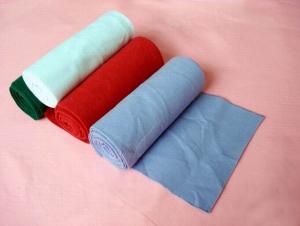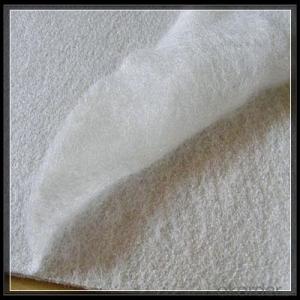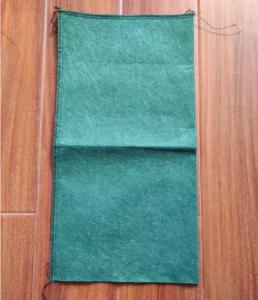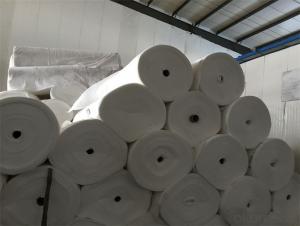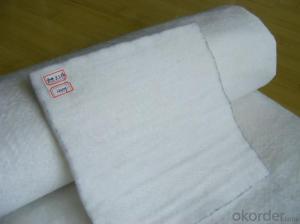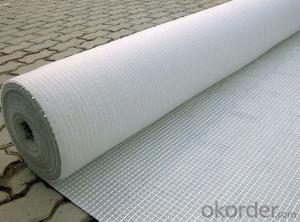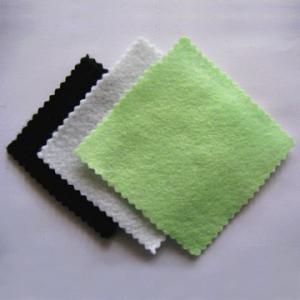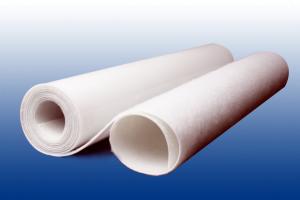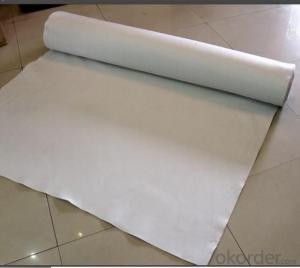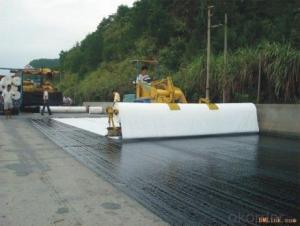PP Nonwoven Geotextile Sand Bag Slop Protection
- Loading Port:
- China main port
- Payment Terms:
- TT or LC
- Min Order Qty:
- 3000 pc
- Supply Capability:
- 300000 pc/month
OKorder Service Pledge
OKorder Financial Service
You Might Also Like
1, Brief Introduction of PP Geo Textile Bag
Eco bag material is a kind of non woven geotechnical fabric, It is made of polypropylene (PP) or polyester fiber (PET) is made of raw materials or single-sided double-sided ironing needling non-woven fabrics processed bag. Eco bag against UV thickness, unit quality, physical and mechanical properties, appearance, fiber type, loading mode, orientation, geometry and permeability and satisfy the plant growth indices such as equivalent aperture on the strict screening, with anti UV, corrosion resistance is strong, resistant to microbial decomposition, anti ageing, easy plant growth, adapt to the characteristics of environment, material degradation, not good stability, non-toxic, non combustion, the breach does not extend. Mainly used in the construction of flexible ecological slope. Eco bag greening protection of side slope, is the barren, mining rehabilitation, highway slope green, river bank revetment construction method, one of the important river regulation.
Eco bag has excellent physical and chemical properties, the preparation of special material erosion can resist ultraviolet radiation, not affected by chemicals in soil or decaying, not a qualitative change, erosion, permanent non degradable and can resist pest aging resistant, non-toxic, acid and alkali and salt corrosion and microbial decomposition, only the permeable and impermeable soil, to plant friendly and vegetation greening
2,Technical data sheet
| Item | Unit Weight g/m2 | |||
| 100 | 125 | 150 | 200 | |
| Tensile Strength KN/m | ≥4.5 | |||
| Elongation at break % | ≥40 | |||
| Material | PP or PET | |||
| CBR Mullen Burst Strength KN | ≥0.8 | ≥1.1 | ≥1.4 | ≥1.8 |
| Tearing Strength KN | ≥0.14 | ≥0.17 | ≥0.21 | ≥0.28 |
3. Features
Eco bag raw material does not absorb moisture, water appears not to destroy the bag, the bag can not be deformed, insoluble in liquid pollution
Resistance to chemical corrosion (PH)
Acid and alkali chemicals to a certain concentration of extensive research tests showed that the eco bags have strong resistance, can be used for the vast majority of solid and serious pollution sites
Anti biodegradation and animal damage
Eco bag using a special formula of material, does not support, does not absorb, not to help the fungus growth, not rot, not moldy, metamorphism. Eco bags are not insects and related animal digestion, will not become a tooth gnawing animal (mouse), termites, beetles, moths, whitebait, moths and other food.
UV resistant polymer
Eco bag can withstand 150 degrees Celsius without melting, can afford the minimum temperature of -40 degrees celsius.
Anti ultraviolet (UV)
Eco bag containing carbon ink and other anti UV component.
4,Application
Ecological restoration
1) On both sides of the river: Natural bank with the environment of human and wildlife coexistence
2) Green mine recovery: Comprehensive utilization of mine gangue, scientific renovation subsidence area, greening of barren hills, purifying water, create the mine ecological restoration, barren hills and green complex in New Era
3) The lake shore, the sea surface landslide, culvert hole, a drainage ditch, soil erosion, irrigation system;
4) Artificial wetland: Ecological restoration;
5) Roof greening;
1) Vertical greening, landscape art;
Infrastructure construction
2) Lake revetment: Applicable to the river, lake, reservoir slope.;
3) Special application: Military facilities and emergency flood control, flood control dams bunker, etc.;
Landscaping and residential garden
2) Commercial and residential district;
3) Roof garden green
5,Package
Packed in roll or as the customer's requirements;
6. Pictures
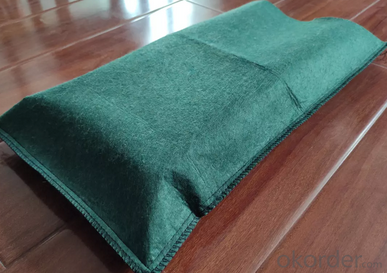
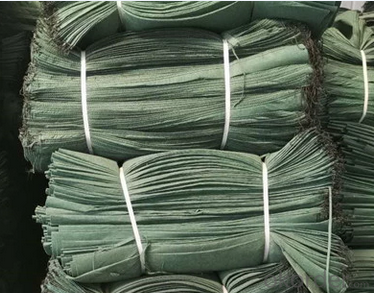
7.FAQ
We have organized several common questions for our clients,may help you sincerely:
1>How about your company?
A manufacturer & supplier focuses on the production of geo textile and geo bag etc. We have exported this product to Amereica, Europe and South East Asia. Customized product is also available based on your detailed requirements.
2> What's the MOQ ?
We kindly recommend 1x40'HQ as the price would be economical based on large loading quantity.
3>How long can we receive the product after purchase?
It takes about 1 to 2 weeks to finish the production based on the specific production schedual. Then it will depend on the shipping time from loading port to the destination port.
- Q: What is the purpose of using geotextiles?
- The purpose of using geotextiles is to provide various functions such as separation, filtration, reinforcement, and drainage in civil engineering and construction projects. They are used to prevent the mixing of different soil layers, improve soil stability, control erosion, and enhance the overall performance and longevity of infrastructure projects.
- Q: Geotextile Model PP200-4-750 What does it mean?
- Is the geotextile 200g / ㎡? Geotextile is generally based on the weight per unit area to divide the specifications. Geotextile manufacturers Zhang Ming Chao for you to answer, I hope to help you.
- Q: What is the high strength to strengthen the composite geotextile
- The correct product name should be high-strength reinforced composite geotextile This is a different from the traditional geotextile new products. Reinforced geotextile is made of high-strength fiber tow and non-woven composite weaving, the process is arranged in parallel fiber bundles, give full play to the role of the yarn. Non-woven mat under which the warp technology will be wrapped around the bundle, so that fiber tow and non-woven together, not only to keep the non-woven filter, but also has the strength of woven cloth. Mainly used in: rivers and lakes, drains, reservoir dam control project and power plant ash dam, mine, airport, cargo yard, railway, highway, tunnel, municipal, environmental protection and other projects, with reinforcement, isolation, Drainage, protection and other functions, is an excellent geotechnical materials; the main role is to seepage and isolation of the grassroots level, to prevent soil erosion, sand, and the embankment foundation of the embankment increased tolerance. The superiority is mainly manifested in the following aspects: high strength composite reinforced geotextile anti-aging durability, the service life can reach and more than 100 years; high strength composite geotextile puncture high strength, physical indicators far more conventional geosynthetics Material strength index; high strength composite geotextile friction coefficient, the adhesion is particularly strong, increasing the adhesion of the isolation layer, taking into account the external factors on the impact of reinforced filter layer reduced; high-strength composite geotextile reinforced acid, alkali , Salt corrosion, in the low temperature and high temperature and UV anti-aging experiments, the physical indicators stable.
- Q: Do you have a drainage board and geotextile on the roof
- Good, but you use very little, the purchase is difficult, the price will not be cheap Huazhi geotextile material manufacturers
- Q: 200g / m2 geotextile how to enter the inspection test
- (Including: wide strip tensile test, trapezoidal tear strength test, CBR bursting strength test, puncture, mechanical properties, including mechanical properties (including: gross weight per unit area, amplitude measurement, thickness measurement); mechanical properties (including: (Including vertical penetration test (constant head method), hydrostatic pressure test, effective pore size test (dry sieve method), clogging test, etc.). Related testing standards: 1. Short wire acupuncture geotextile with reference to GB / T-1998.2. Filament acupuncture geotextile with reference to GB / T-2008.3. Filament woven geotextile GB / T-2008.4 Welded film woven geotextile with reference to GB / T-1998
- Q: The vertical permeability coefficient of 400 g per square filament geotextile is generally how much
- 1.0 × 10-1cm / sK × (10-1-10-3) I specialize in the production of geotechnical materials
- Q: Geotextile what role
- The role of geotextile 1. Highway and railway construction for the separation of reinforced geotextile drainage; 2. Bank slope dam reinforcement geotextile; bridge engineering geotextile; waste piling pool; artificial pool with impermeable geotextile; cloth. 3. The effect of geotextile is: 1. The application of reinforcement can be stable, limit the displacement of civil engineering in the long-term use, and can make the local stress transfer or distribution in the soil To a larger area, to increase the friction between the soil and geotextile resistance. 2. Application of isolation with geotextile to separate the different soil structure, the formation of a stable interface, so that the structure of the separation of layers, in accordance with the requirements to play their respective characteristics and the overall role of 3. Protective effect of geotextile soil or Water, can play the role of protection and anti-fog, 4. the role of the application of geotextile soil can let the water through, but also effectively prevent the passage of soil particles, so as to prevent the loss of soil particles caused by soil damage, The application of non-woven geotextile in the soil can form a drainage channel, the soil together in the water, along the plane of the material out of the body. 5. Application of seepage prevention Geomembrane and composite geotextile material, can prevent the leakage of liquid, gas evaporation, environmental protection or building safety.
- Q: Related applications, product applications, industrial structure and distribution
- The geotextile is defined as geotextiles or geosynthetics that exist between soils and pipelines, gages, or retaining walls, that enhance water movement and impede soil movement. ASTM 4439 standard geotextile is defined as: a purely permeable geosynthetics to form textiles. It is used in soil, rock, soil, or other geotechnical engineering materials and acts as a component of a human-made project. It is a permeable geosynthetics made of synthetic fibers by needling or weaving. Finished cloth for the cloth, the general width of 4-6 meters, the length of 50-100 meters. Geotextile is divided into a woven geotextile and non-woven geotextile. Geotextile has excellent filtration, isolation, reinforcement protection, high tensile strength, good permeability, high temperature, anti-freeze, anti-aging, corrosion resistance. I also check in the road cloth, just to find, you should be a peer to share with you
- Q: Geotextile unit why is g / square meter why do not use the thickness of the unit
- Geotextile, also known as geotextile, it is made of synthetic fiber through acupuncture or woven from the permeability of geosynthetics. Geotextile is a new material geosynthetics which one, the finished product for the cloth, the general width of 4-6 meters, the length of 50-100 meters. Geotextile is divided into a spinning geotextile and non-woven filament geotextile.
- Q: How are geotextiles used in shoreline protection?
- Geotextiles are used in shoreline protection to stabilize and reinforce the soil, preventing erosion and maintaining the integrity of the shoreline. They are typically installed as a barrier between the soil and water, acting as a filter to allow water to pass through while retaining the soil. This helps to reduce wave energy and promote sediment accumulation, ultimately protecting the shoreline from erosion caused by currents, tides, and storms.
Send your message to us
PP Nonwoven Geotextile Sand Bag Slop Protection
- Loading Port:
- China main port
- Payment Terms:
- TT or LC
- Min Order Qty:
- 3000 pc
- Supply Capability:
- 300000 pc/month
OKorder Service Pledge
OKorder Financial Service
Similar products
Hot products
Hot Searches
Related keywords
